The Minds of Kant, Dennett and Freud

Interview by Richard Marshall
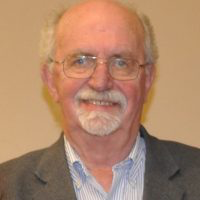
' Philosophy has a central role to play in cognitive science and philosophy of cognitive science still has a lot of work to do.'
'Far from Kant having been superceded by more recent work, some of his most important ideas have not even been assimilated into it. His work on mental unity, in particular the unity of consciousness, and the kinds of synthesis of mental contents required for it are the most important example but his remarkable insights into the nature and referential tools of self-awareness is another. That Kant was hostile to the materialist model of the mind (without much reason, in my opinion) and had little use for what passed for empirical psychology in his time says nothing to the contrary.'
'Dennett can be a bit sketchy at times but he once called himself (in a response to me) a deflationist. He wants to deflate exotic and badly supported claims, not deny the existence of anything. Take his famous rejection of qualia. He certainly did not deny that philosophers are talking about something real when they talk about qualia, that experiences are like something to have. He just thinks that calling this whatever-it-is a quale is a poor idea. Built into the idea of qualia are many claims that are just not true of actual conscious states. So find a better word.'
'While I find Freud very interesting as an historical figure, and an immensely influential one, I do not believe that we can still learn from him in the way that we can still learn from Kant. Freud certainly extended our psychological vocabulary and array of ideas enormously but he was hostage to the biology and the general psychology of his day. This greatly diminishes the ongoing value of his specific claims.'

Andrew Brook is a philosopher interested in the project of interdisciplinary cognitive research, Kant, consciousness, psychological and psychoanalytic explanation and environmental ethics. Here he discusses the role of philosophy in cogntive science, Kant and the cognitive sciences, Realism and Idealism, the importance of Dan Dennett, why we shouldn't talk about levels of the mind, the unity of consciousness, amphibolies, the self and persons, language and thought, the importance of Freud, on understanding the history of philosophy of mind, and an aside on AI.
3:16: What made you become a philosopher?
Andrew Brook: In my last year of highschool, I read Will Durant’s Outline of Philosophy. Whatever the ultimate merits of the book, it was much more interesting than anything I was doing in school. (Not a distinguished school in one of the poorer parts of town, the town being Edmonton in Canada.) So as soon as I arrived at the University of Alberta, I signed up for a major in philosophy and, with a couple of longing glances at architecture early on, I have never looked back. Optional: My years at the U of A were among the best years of my life. Bas van Fraassen, another 3:16 interviewee, was ahead of me two years in Philosophy. Beverley McLachlin, future Chief Justice of Canada, was in my year. And Joe Clark, future Prime Minister of Canada, was my campaign manager when I ran for President of the Student Union. Initially Hegel, Marx and social philosophy were my main loves but when I went to Oxford for graduate studies in the late 60s, I discovered analytic philosophy of mind and it became my home. About 20 years later, I added a clinical license in psychoanalysis and began to acquire some knowledge of the non-philosophical disciplines that contribute to cognitive science, but I have always taught and written philosophy.
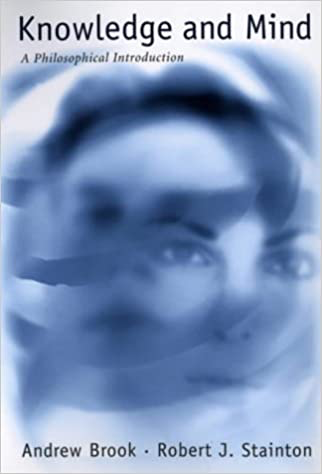
3:16: You’ve worked a deal in philosophical issues arising in the various areas of cognitive science. Starting there then, so we get a sense of the landscape, what is the philosopher’s role in this area? Some non-philosophers (and a few philosophers) would wonder whether there’s any point to heeding philosophers here – the thought is that the scientists have it all locked down and under control! So what’s the difference between philosophy in cognitive science and philosophy of cognitive science and what are philosophers doing in the former?
AB: Yes, indeed! I was there when Christof Koch, a cognitive neuroscientist of international renown, said that philosophers had made a good speculative start but scientists (he meant ‘we scientists’) are now doing the job properly. A view that betrays a deep-running ignorance of philosophy, in my opinion. Philosophy has a central role to play in cognitive science and philosophy of cognitive science still has a lot of work to do. In cognitive science, philosophers do vital work clarifying concepts (the conceptual toolbox of cognitive research is a mess) and showing how hypotheses and theories relate to one another – in short, showing how things, in the broadest sense of ‘things’, hang together, in the broadest sense of ‘hang together’, as the outstanding American philosopher Wilfred Sellars put it some decades ago. Philosophy of cognitive science is just a branch of philosophy of science, though the wide range of styles of explanation used by cognitive researchers, just to take one example, offer some special challenges.
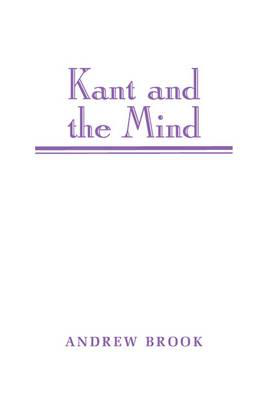
3:16: You’re also an expert in Kant. Does Kant have things to contribute to cognitive science? Is contemporary neo-Kantianism usefully pivoting Kantian insights into cognitive science? I guess this all boils down to asking whether Kant is at all helpful for modeling the mind?
AB: The full story of Kant and cognitive science is long. I have tried to tell parts of it a few times. Some of the major points. Most cognitive researchers, people as different as Freud and Fodor, are broadly Kantian. To a greater or lesser degree, they accept a functionalist, multi-faculty picture of the mind, often tripartite. They all hold that the mind’s (top-down) processing of information is as central to at least human cognition as sensible (bottom-up) reception of information. And they all infer from observed phenomena (cognitive activities, in Kant’s case, as well as behaviour, central now) to the nature and functioning of the mind. Kant originated or greatly developed all these approaches.
However, far from Kant having been superceded by more recent work, some of his most important ideas have not even been assimilated into it. His work on mental unity, in particular the unity of consciousness, and the kinds of synthesis of mental contents required for it are the most important example but his remarkable insights into the nature and referential tools of self-awareness is another. That Kant was hostile to the materialist model of the mind (without much reason, in my opinion) and had little use for what passed for empirical psychology in his time says nothing to the contrary.
3:16: If Kant has something important to contribute, does that mean that some kind of Idealism is still a live option? Are you a Realist or an Idealist?
AB: I myself am an unapologetic realist, indeed am what some call a naïve realist. I believe that when we have visual experiences, we see the world and the things in it, not just representations of the world. If this is naïve, that would be because it is the view of nearly everyone whose mind has not been warped by some philosophy professor. And I think that idealism has lost the race. It can be construed in a way that hangs together but there are very few idealists any more in the same way as there are very few mind/body dualists (and for some of the same reasons).
How much does this put me at odds with Kant? That is not clear, for at least two reasons. First, Kant was a very special kind of idealist; he said over and over that he was also an empirical realist. Even more, idealism and realism fought it out in him for decades and some important commentators hold that realism won in the end. Second, many of the different strands in Kant’s work are independent. (This is true of the work of most great thinkers, even those such as Kant who make strong claims about how integrated their ‘system’ is.) If a thinker’s various views are logically independent of one another, those of us who come after may if we wish take up some claims and theories and reject – or ignore – others. My approach has been to work on what I find to be of continuing importance in Kant while not paying a lot of attention to some of the rest.
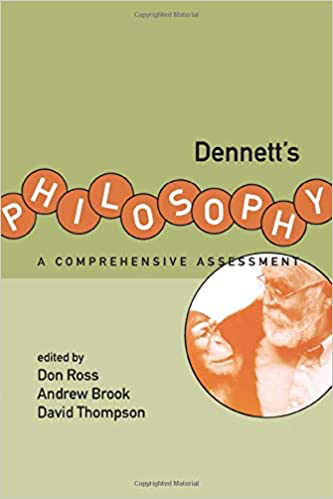
3:16: A key area of mind is consciousness. You’ve written extensively about this – and about Dan Dennett as well, a leading figure in the philosophical work in this area over the last forty years or so. It’s been dubbed ‘the hard problem’ by Chalmers, one of Dennett’s most formidable opponents. So where do you stand on Dennett’s approach to consciousness? I think you’ve said that the implications of his theory have been a little oversold – so can you first sketch for us what you take to be Dennett’s current position that avoids the overselling? Galen Strawson for one (and I think this is also the thought of Chalmers and others) has found Dennett’s claim (and all other consciousness deniers) that consciousness is just an illusion and that we’re only as conscious as a Zombie is an outrageous claim. Are they wrong about this? Which parts of the Dennett approach to mind are you fully on board with and which would you discard, if any? And how would you replace the discarded parts?
AB: Let me respond to these three questions on Dennett together. The response to the issue regarding consciousness deniers is this. There are almost no consciousness deniers (I can think of only two and Dennett is not one of them). The idea that he is a consciousness denier is what has been oversold, perhaps better over-interpreted, about his work. He has said repeatedly that consciousness is real, as real as brains. I have read Galen Strawson on Dennett and I am utterly unconvinced, indeed think that I know exactly where he went wrong, though I do not have the space to go into that here.
Dennett can be a bit sketchy at times but he once called himself (in a response to me) a deflationist. He wants to deflate exotic and badly supported claims, not deny the existence of anything. Take his famous rejection of qualia. He certainly did not deny that philosophers are talking about something real when they talk about qualia, that experiences are like something to have. He just thinks that calling this whatever-it-is a quale is a poor idea. Built into the idea of qualia are many claims that are just not true of actual conscious states. So find a better word. Indeed, conscious ‘states’ are mostly not even states. They are processes – they unfold in time, quite a long chunk of time sometimes. For the powerful implications of this idea, see Dennett’s responses to Benjamin Libet in Freedom Evolved.
As you say, Dennett did indeed once say that we are all zombies – and immediately added in a footnote that it would be an act of desperate intellectual dishonesty to quote that statement out of context. Well, guess what? Dennett is saying almost the opposite of what he is often taken to being saying. He is saying that philosophers’ zombies honestly articulated, that is, beings fully cognitively identical to conscious human beings (he calls them zimboes), would not lack anything worth having about consciousness. Put more simply, they would be conscious. That is consciousness denial? I do not think so. Deflation maybe but certainly not denial. A great deal more could be said about all this but I will move on.
As to Dennett on consciousness generally, I find the negative side of his work, the side in which he demolishes influential views that have caused no end of trouble, persuasive and often marvelous. His demotion of what he calls the Cartesian Theatre, a mythical place in the brain where it ‘all comes together’ in a single unified consciousness, is a prime example. Another is his hatchet job on philosophers’ claims about zombies (philosophers such as David Chalmers). The substitute views of his own are often not as developed as one would like and are, for me at least, often not as compelling. They are all built on the idea of multiple draft narratives unfolding in the brain, available to become conscious. In his big book, Consciousness Explained, he said that they become conscious when we probe them (something like an attention theory). By the mid-90s he had switched to the idea that the narratives that become consciousness are the ones that achieve cognitive fame (‘fame in the brain’). For me, the important question to ask of these theories is not whether they are theories of consciousness – they clearly are. It is how different are they from other approaches, for example approaches based on attention, or higher-order thoughts, or a global workspace (the similarities to global workspace theory are quite close). My general answer is: Often not as different as Dan Dennett thinks they are.
3:16: Why do we need to talk about levels in cognitive science and how should we understand what talk of levels is about?
AB: We don’t need to talk about levels – levels talk is just loose talk. The famous tri-level hypothesis in cognitive science holds that to understand any cognitive activity thoroughly, we must understand (1) what task it performs, what work it does for us, (2) the procedures by which is does so, and (3) how these procedures are implemented in the brain. So far so good. The trouble is, these aren’t levels, there are far more than three of them, and the idea is not an hypothesis. (Other than that, the idea is fine!)
Not just three because we can carve up cognitive and neural activity in as many more and more fine-grained ways as we like. Not levels because each ‘level’ is really a new way of describing the single, unlayered cognitive system before us. Multiple descriptions, not multiple levels. Not an hypothesis because it is a claim and a recommendation, not an hypothesis. What kind of evidence would support or undermine it? Talk of levels is woolly, misleading talk and we would be better off if we stopped using it.
3:16: Another area that you’ve discussed – and again one where cognitive science and Kant may be seen to be important – and one where Galen Strawson has made important contributions using insights from early moderns like Locke and Hume - is the idea of what philosophers and scientists call the unified consciousness and the self. How should we approach understanding them? Where is the unity of consciousness to be found?
AB: In my view, following Kant, consciousness (and indeed cognition) being unified in the way/s that it is, is about the most important part of consciousness and cognition. Without such unity/ies, we could not relate things one to another and so could not think: no science, no novels, no back-and-forth discussions – no nothing of cognitive complexity. Thus I am pleased to see that unity is back on the agenda of consciousness studies and even a bit in cognitive science.
Where is it located? We do not yet know. Prefrontal cortex? Temporal lobe (low on the side of brain)? Interaction between the two? One relevant result: Research on commissurotomy (‘brain bisection’) patients suggests that each hemisphere of the brain can have unified consciousness independently of the other, which would rule out it being lateralized to one side of the brain.
The self? Well, people mean many different things by the term. I tend to think of it as simply the person as she is aware of herself non-inferentially and non-perceptually. Studying this awareness is interesting – what it is like (very unlike perception, in my view), how much about ourselves we are thus aware of (since Freud many hold that we are aware of less about ourselves than we think), and so on. It is nearly the sole topic of phenomenology. Since in my view (a controversial view), cognitive systems could function perfectly well at a very high level without consciousness of self, for me it is not nearly as fundamental to our kind of cognition as unified consciousness of the world, our body, and so on. Kant if he were here would strongly disagree.
3:16: What was the dispute between Kant and Leibniz regarding amphibolies and does it help clarify some issues arising in the philosophy of personhood for contemporary work?
AB: An amphiboly (a word that Kant either invented or turned to his own purposes) is, says Kant, being wrong about the sources of knowledge. In particular, Kant claims, Leibniz held that knowledge that we acquire via the senses really comes to us by ‘pure’ thinking and Locke made the opposite mistake – he thought that knowledge that we in fact acquire independently of the senses (‘a priori’) comes to us via the senses. Kant’s critique of these two amphibolies is thus a criticism of what he sees as the deep one-sidedness of both rationalism and empiricism – and a rousing defence of his deeply held doctrine that knowledge requires both top-down and bottom-up processes.
Since the concept and Kant’s claims about Leibniz and Locke were emmeshed in the intricacies of the writing and organizing of the last-written parts of his most famous book, Critique of Pure Reason, the concept has considerable interest in the context of interpreting Kant. I am not sure that it is enormously important beyond that.
3:16: Ok, well let's go back to the self. When we say we’re tracking a person over time what are we tracking? And is a ‘person’ the same as a ‘self’ or are they used by philosophers and in the related literature to be importantly distinct?
AB: A complicated story and one that I have pursued both in the context of Kant and in the context of contemporary empirical research on what it is for a person to persist as him- or herself over time. For a variety of reasons, I think that when psychological continuities are present (which they are in all but people in a severe vegetative state and the like), they are decisive. There is a nested series. When autobiographical memory is present (memory ‘from the inside’ of having earlier experiences, doing earlier acts, feeling earlier feelings), they rule – at least in reality (I won’t go into the problems of though experiment heaven), the earlier and the later person are stages in the life of a single person. Absent such memories (and they are very rarely absent), we back off to other kinds of memory and continuity of personality (continuity of beliefs, interests, point of view, sense of humor, and a great deal more). If no such memories and continuities are present, then and only then do we back off to bodily continuities.
As for person and self: I already said that various people use the word ‘self’ to talk about various different things. Since I use it to talk about a person as s/he is aware of him- or herself, for me the self is just the person from his or her own point of view. In my view, a great deal of very confusing prose would be avoided if everyone adopted this usage.
3:16: Fodor, Jackendoff and Chomsky all have things to say about the relationship between language and thought. Where do you stand on this issue – how should we approach understanding the relationship and what are the implications for methodology and modeling cognition?
AB: I don’t have a lot to say about language and thought. Without our kind of language – syntactically structured, combinatorial, systematic --, our kind of cognition would be impossible. It increases our cognitive capacity thousands of times. Like a system of roads, while it confines in some ways, it make things of the greatest importance possible that would be impossible otherwise. That said, language is exquisitely complicated and no one can say anything new about it without knowing a lot of linguistic and psycholinguistic theory. Theory of language/action pragmatics, too. I had finished university by the time that most of that theory was developed and have never learned enough of it to do anything interesting with language.
3:16: Where, if anywhere, does Freud and psychology link with cognitive science? Are they complementary or in conflict?
AB: Freud wrote the first work of what we now call interdisciplinary cognitive science, The Project for a Scientific Psychology, in 1895. Indeed, in his university days in the 1870s, he wanted to become an academic scientist. He did a lot of biological research, finding, for example, eel’s testes for the first time and even explored the possibility of doing a doctoral dissertation with the important Austrian philosopher Franz Brentano and the biologist for whom he had been doing research. No one could be an academic at the end of the 19th century, certainly not in Vienna, without independent wealth and Freud wanted to marry and have children (he and his wife eventually had six), so instead of pursuing philosophy and biology, which he loved, he became a neurologist and invented psychoanalysis.
Even though Freud has been roundly attacked by some cognitive researchers, in fact few of his psychological views would have to be false if contemporary views about cognition are true and vice-versa. The two bodies of doctrine are often very different, of course, but there are even some common views, in particular that we are not conscious of much of our affect and cognition.
Among the differences, at least two are philosophically interesting. One concerns method. The difference flows directly from Freud’s life circumstances. He had no access to laboratories so he had to draw his evidence from his and others’ work with patients. So-called single case studies have their problems, indeed look unscientific to us now, but such studies continue to be important to psychoanalysis and psychotherapy generally. Another important difference is this. Freud often (though by no means always) explained peoples’ behaviour by reference to their reasons for thus behaving. Indeed, one of his signal achievements was to vastly expand the range of behaviour that we can thus explain. In his time, behaviour considered odd or indicative of mental illness was generally explained by reference to ‘constitutional’ factors: lack of cognitive ability, distortions of emotion, cognitive or emotional weakness, and the like. Freud disagreed, urging that a lot of such behaviour is just as much the result of motives, beliefs, and fantasies as more ‘normal’ behaviour. It is just that often the motives, beliefs, and fantasies are unconscious.
Freud thereby revolutionized psychiatry. When people do odd things, they do what they do for reasons, not out of blind mechanical incapacity. (The notion of unconscious reasons also expanded the ordinary psychological vocabulary of everyday life, what is often called ‘folk psychology’, enormously.) And cognitive science? Cognitive science seldom explains behaviour by reference to reasons for the behaviour. Strange, given the massive role that such explanations play in the social sciences, humanities, and everyday life, but true. There is room for a meeting of minds.
All that said, while I find Freud very interesting as an historical figure, and an immensely influential one, I do not believe that we can still learn from him in the way that we can still learn from Kant. Freud certainly extended our psychological vocabulary and array of ideas enormously but he was hostage to the biology and the general psychology of his day. This greatly diminishes the ongoing value of his specific claims.
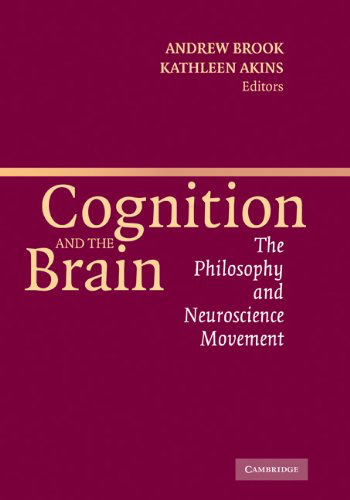
3:16: It’s fashionable to take philosophy to task for being ahistorical but it seems to me that you’re very conscious of the philosophical insights from the past that have fed into contemporary debates in cognitive science. Can you sketch for us who are the philosophers from the past that have helped the development of contemporary thinking about minds?
AB: The separation of philosophy and psychology happened only late in the 19th century. People such as Kant and Hume did both philosophy and psychology. Kant at least viewed them as different from one another (his name for what we would call psychology was anthropology) but he did not feel compelled to stick to one of them. The same with a lot of other things: Kant lectured on mathematics, physics, history, physical geography (he created the discipline), and so on. The intellectual silos that academics live in now would have been very foreign and unwelcome to people working 200 years ago. By far the most influential philosopher/psychologists in the history of thought were Aristotle and Kant, followed closely by Descartes (whose view of the mind was dominant for about 300 years), Locke, Hume, and Wm. James.
3:16: From considering the past I’d like you to speculate about the future. Is AI going to be able to be conscious at some point – and are there existential threats connected with AI as some have warned – or is that just hysteria?
AB: One machine has achieved consciousness, the mammalian brain, so I imagine that others will with time, too, including some that one kind of mammalian brain, namely ours, constructs. Will conscious AI systems be a threat? They could be – that will be entirely up to the people who make and pay for them. I’d want to be sure that I could always reach the ‘off’ switch. That said, while I sit in awe of self-driving cars, machine translation systems good enough to meet most needs, self-levelling and self-guiding drones (which can be bought for less than $100!), and the like, I do not know enough about them to say anything of consequence.
3:16: And finally, for the readers here at 3:16, are there five books other than your own that you can recommend that will take us further into your philosophical world?
AB: Sure.
Philosophy and Cognitive Science: Brook, Andrew. Philosophy In and Philosophy of Cognitive Science. 2009. In the theme, The Place of Philosophy in Cognitive Science, Topics in Cognitive Science, 2009 1:2, 2010 1:3, and 2011 3:2. Papers by eight leading philosophers in and of cognitive science including Dennett, Thagard, Bechtel, and Jacob.
Kant: The Stanford Encyclopaedia of Philosophy (plato.stanford.edu) has a number of excellent articles on Kant. The general overview article is probably the place to start. Most books on Kant are written for other Kant scholars.
Consciousness:
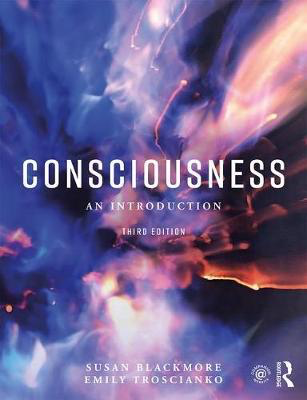
Blackmore, Susan and Emily Troscianko. 2018. Consciousness: An Introduction, illustrated. London: Routledge.
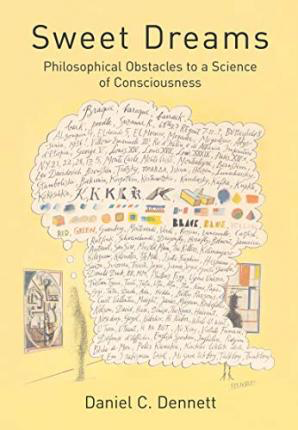
Dennett: Dennett, Daniel C. 2006. Sweet Dreams: Philosophical Obstacles to a Science of Consciousness (Jean Nicod Lectures). A Bradford Book. Cambridge, MA: MIT Press.
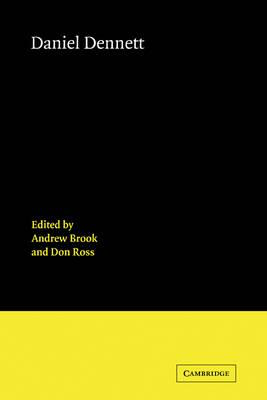
Ross, Don. 2002. Dennett’s Position in the Intellectual World. In: Ross, Don and Andrew Brook, eds. Daniel Dennett (Contemporary Philosophers in Focus). Cambridge and New York: Cambridge University Press.
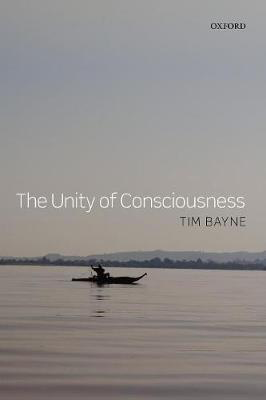
Unity of Consciousness: Bayne, Tim. 2010. Unity of Consciousness. Oxford: Oxford University Press. The only book-length study in English.
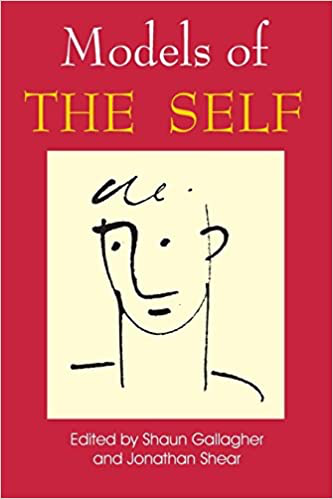
The Self: Models of The Self, 2013. Shawn Gallagher and Jonathan Shear, eds. Thorverton, UK: Imprint Academic. Includes an interesting paper by Galen Strawson and responses.
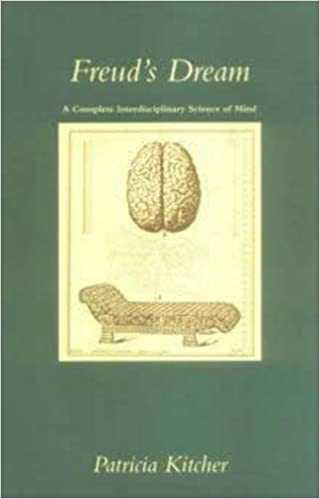
Freud: Kitcher, Patricia. 1992. Freud’s Dream: A Complete Interdisciplinary Science of the Mind. A Bradford Book. Cambridge, MA: MIT Press.
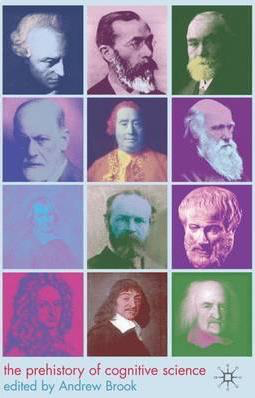
Important Historical Figures: Brook, Andrew, ed. Prehistory of Cognitive Science . Especially noteworthy is the paper on Descartes and the Port Royal School (of logicians) by Noam Chomsky but the volume includes papers by leading scholars on Aristotle, Hobbes, Locke/Berkeley, Hume, Kant, Darwin, Frege, Wundt, James, and Freud.

ABOUT THE INTERVIEWER
Richard Marshall is biding his time.
Buy his second book here or his first book here to keep him biding!
End Times Series: the index of interviewees
End Time series: the themes
Huw Price's Flickering Shadows series.
NEW: Steven DeLay's Finding meaning series
NEW: Joseph Mitterer's Beyond Philosophy serialised weekly